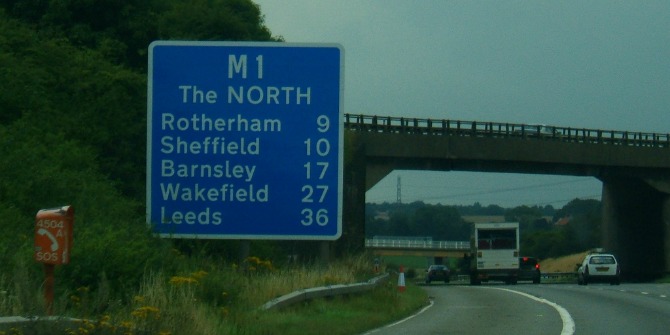 George Jones looks at last week’s budget and finds that the generally overlooked provision of extra funds to Councils to repair potholes is yet another sign that the government is not serious about its localism agenda.
George Jones looks at last week’s budget and finds that the generally overlooked provision of extra funds to Councils to repair potholes is yet another sign that the government is not serious about its localism agenda.
One of the most amazing provisions in the Budget, in the era of cuts in public spending and decentralisation to local government and communities, is the provision in the Treasury’s Budget paper on page 31. It states: “The Government announces £100 million of funding for local authorities to repair potholes caused by the exceptionally cold winter, funded from within existing budgets. This is in addition to the £100 million announced in February 2011.”
This measure, revealing the Government’s sense of priorities, is inconsistent with its much trumpeted policy of removing specific grants which tie local authorities to spending money as central government wishes. While it has abolished some specific grants since coming into office, it has this year set up a new one for potholes and in the budget reinforced it. It is an act of centralised decision-making at odds with the rhetoric of localism.
There was a further reinforcement of central government’s lack of trust in local government, and of its belief it knows best, in its announcement the previous week of the terms of reference of the latest in a long series of reviews of local government finance, although finance is now called “resource”. Phase one of the review will be “examining the scope for further financial freedoms for local authorities, while standing up for and protecting the interests of local taxpayers”. Central government is not going to allow elected local authorities to make their own decisions on spending and taxing, and account for those decisions to their local electorate. It believes that remote Whitehall is better at judging the interests of local taxpayers than are local voters. Central government once again trumps local government.
Any consideration of what should be the main objective of a government that really believed in local democracy is missing from the terms of reference of this “resource” review: decentralising taxation so that local authorities, instead of receiving the bulk of their revenue from central grant, obtain it from taxes they levy on their own voters and where the rate of the tax is determined by the elected council accountable to its local voters.
Whitehall has also been uniting against local government, as revealed in the recent complaints of local authority leaders, by failing to pool departmental budgets in the community budgets programme of 16 pilots covering 30 separate local authorities that was to have brought together streams of public funding in localities under the control of local authorities. Not a single department has agreed to devolve control over any of its cash.
Each week brings more evidence to support my claim that the Government’s Localism Bill still going through Parliament should rightly be called the Centralism Bill.
Please read our comments policy before commenting.







